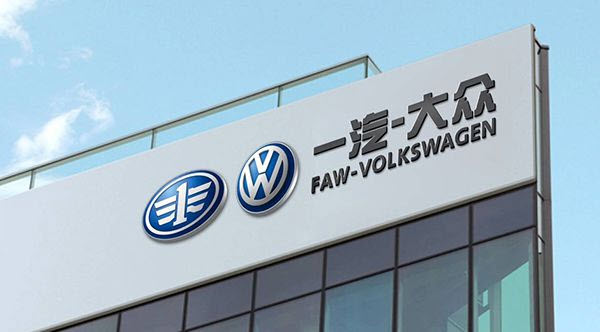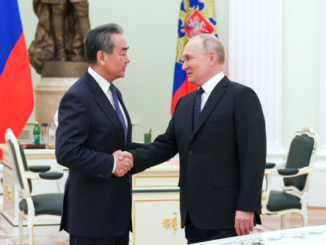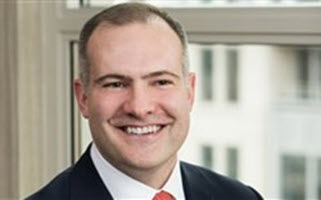
Energy News Beat Publishers Note; Perfect example of how the green movement will only be successful if the system has accountability. Tesla is making more money from carbon credits than from the manufacture of electric vehicles. Thus allowing for companies to not truly change their products to be carbon neutral.
Automaker Volkswagen plans to buy emission credits from Tesla in China, sources familiar with the plans have told Reuters. The deal would be the first of its kind for the two automakers in China.
Like in the U.S., China operates an emissions credit system for automakers to encourage the production of more “New Energy Vehicles”, which includes fully-electric or plug-in hybrid models.
As the world’s leading producer of fully-electric vehicles, Tesla is in a unique position to sell emission credits to other automakers, including in Europe and China.
Automakers in China are awarded “green credits” that can be offset against negative credits for producing more polluting vehicles. Companies can also buy green credits to ensure compliance with overall emission targets.
To help meet more strict emission targets, Volkswagen’s joint venture with state-owned Chinese automaker FAW, or FAW-Volkswagen, agreed to buy the green credits from Tesla, the sources told Reuters. The sources declined to be named as the talks are private.
According to Reuter’s sources, it’s still unclear how many green credits FAW-Volkswagen intended to purchase from Tesla, but FAW-Volkswagen’s offer was around 3,000 yuan (US$456.94) per credit, higher than prices in previous years.
Volkswagen declined to comment on the deal. In a statement to Reuters, the automaker wrote it was “strategically targeting to be self-compliant” with emission rules in China, and would buy credit in order to do so.
Tesla did not respond to requests for comment.
Volkswagen’s Challenges of Switching to Electric Vehicles
The reports that Volkswagen is looking to purchase emission credits from its primary rival in the world’s biggest auto market highlights the challenges the automaker faces in transitioning to electric vehicles, while still trying to hold onto market share with its best-selling internal combustion engine models, including in the U.S.
As Volkswagen makes plans to sell more electric cars, the company reported a 21% increase in Q1 sales in the U.S. on Thursday, the highest increase since 2013.
The sales increases of two of VW’s SUVs in Q1, the Atlas and Tiguan, were the highest ever reported in a quarter. Volkswagen’s top-selling SUVs, which are powered by internal combustion engines, accounted for more than 60% of the automaker’s Q1 sales in the U.S.
The soaring sales of VW’s highly profitable gas-powered models makes it more difficult for the company to replace them with battery-powered versions, at least for the next several years until the company can ramp up its EV production around the world. This also extends to the China market, where gas-powered vehicles make up the bulk of Volkswagen’s sales.
China remains an important market for Volkswagen. The automaker’s Chinese joint venture FAW-Volkswagen sold over 2 million vehicles in the country last year, but the company’s fully-electric models are not as popular with Chinese consumers right now.
By selling mostly internal combustion engine powered models in China, it made Volkswagen one of the most negative credit-generating automakers in the country in 2019, according to data from China’s Ministry of Industry and Information Technology.
The arrangement to buy credits from Tesla, which is one of VW’s biggest rivals in China, is highly unusual. The arrangement effectively means that VW is subsidising its rival Tesla while it ramps up production of its own electric vehicles.
Tesla has also sold regulatory credits in the past to rivals such as Fiat Chrysler Automobiles (FCA), which is now part of Stellantis. But it has not reported any such deals in China since it started building vehicles at its Shanghai factory in late 2019.
In 2019, FCA was facing heafy fines from the European Commission for excessive emissions across its model lineup. At the time FCA was in a tough position of paying Tesla millions of euros for the additional credits, or face hefty fines up to billions of euros for not being able to meet EU emissions mandates when they became law this year.
Tesla reported $1.58 billion of revenue from selling regulatory credits to other automakers in 2020, which significantly inflated its earnings. However, Tesla is aware that the additional revenue it takes in from selling emissions credits to rivals will eventually dry up, as the world’s automakers electrify their model lineups.
Volkswagen’s China joint ventures plan to roll out five new electric ID family vehicles this year, which means the automaker won’t need as many green credits in the future.
resource from: Reuters



